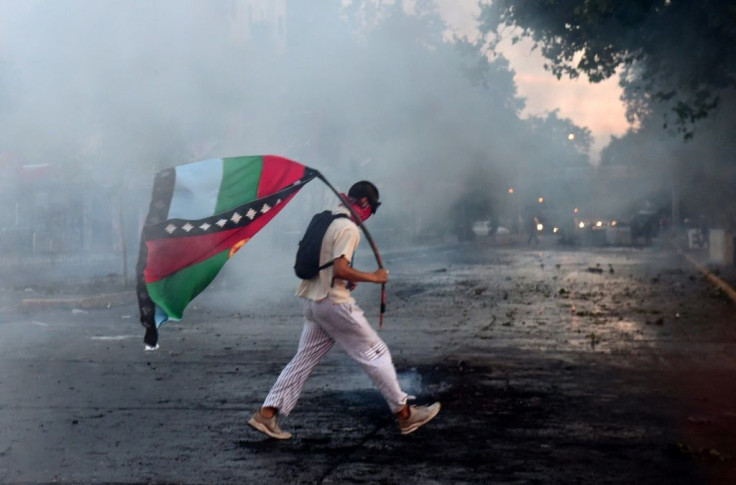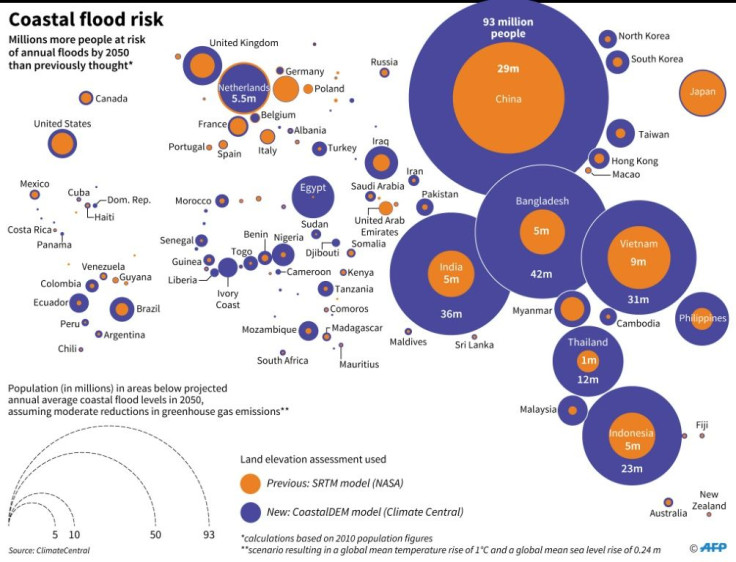Spain Steps In To Host COP25 Climate Summit As Greta Asks For A Lift

Spain will host the COP25 climate summit in December, the UN said on Friday, after Chile abandoned plans to hold it due to deadly anti-government protests.
Some 25,000 delegates had been expected in Chile for COP 25, including teenage Swedish activist Greta Thunberg.
"We are pleased to announce the COP Bureau has agreed that COP25 will take place from 2-13 December in Madrid," United Nations climate chief Patricia Espinosa said on Twitter.
Thunberg, who refuses to fly because of the carbon emissions involved and had already made it halfway from Sweden to Chile for the summit by boat, train and electric car when the new venue was announced, turned to social media to ask for a lift to Madrid.
"It turns out I've travelled half around the world, the wrong way:)...If anyone could help me find transport I would be so grateful," she tweeted from Los Angeles.
Following more than 10 days of street protests, Chilean President Sebastian Pinera said Thursday his country was not in a position to host either the December 2-13 climate convention or the November 16-17 Asia Pacific Economic Cooperation (APEC) summit.
"This has been a very difficult decision, a decision that has been deeply painful because we know exactly how important APEC and COP are for Chile and the world," said Pinera.
He added that Spain's Socialist Prime Minister Pedro Sanchez had offered to host the COP 25 climate summit in Madrid on the original scheduled dates.
In a tweet Sanchez, who is gearing up for a repeat general election on November 10, called Espinosa's announcement that Madrid would host the event "excellent news", adding Spain was already working to prepare the gathering.
'Real barriers'
Harjeet Singh of environmental group ActionAid International said moving the summit from Chile to Spain "with only four weeks' notice presents real barriers to participation" for delegates from the southern hemisphere.

"Hotels in Madrid are already full. Last minute flights are expensive. Visas can be difficult to obtain at short notice. This sudden decision is likely to shift the balance of power towards the wealthier countries of the global North," he added in a statement.
It is the second time that UN authorities have had to scramble to find a new meeting place. Brazil originally welcomed the gathering then backed out after right-wing President Jair Bolsonaro took office in January.
APEC said it supported Chile's decision but gave no indication there would be a replacement summit this year, saying only that Malaysia would host the 2020 event.
Chile is grappling with its worst social crisis in decades, one that shows little sign of abating despite Pinera announcing a raft of measures aimed at placating protesters.
Demonstrators have demanded that the 69-year-old right-wing leader -- whose personal fortune is estimated by Forbes at $2.8 billion -- step down.
They have been angered by low salaries and pensions, poor public health care and education, and a yawning gap between rich and poor.
Arson and looting
Pinera announced last week an increase in the minimum wage and pensions as well as measures to alleviate sky-high health care costs and a streamlining of public offices.
Protests began on October 18 and during the first few days there was widespread destruction, arson and looting.
Demonstrations have been largely calm over the past week but there were violent clashes between demonstrators and security services on Monday, when shops were looted and a building set on fire.
Twenty people have been confirmed killed in the unrest. Chilean prosecutors said Wednesday they were investigating a total of 23 deaths thought to be linked to the crisis.
A mission led by the United Nations High Commissioner on Human Rights Michelle Bachelet -- Chile's former president -- is expected to open a probe later this week into allegations of police brutality.
© Copyright AFP 2024. All rights reserved.




















